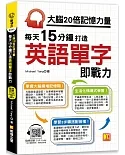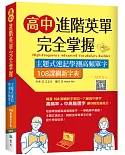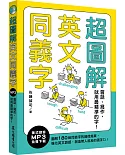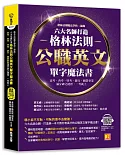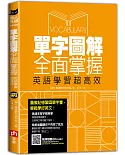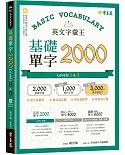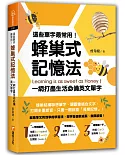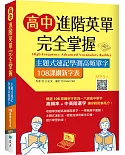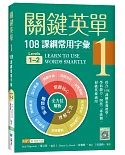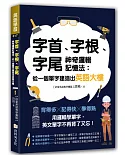【作者序1】
一般人學習英文都是由背英文單字開始,不管大腦是否能吸收,就開始硬記死背,有時候根本不瞭解單字的正確用法,以為「背了就對了」,等到真正要使用時,才發現腦袋裡擠不出一個適當的單字。其實,要學好單字,只要將單字融入生活中,學會在什麼情境下可以用哪些字,自然就不會詞窮了。
我之前寫的《最常使用的單字》意外獲得了許多上班族讀者的迴響和建議。在越來越國際化的台灣,職場上跟老外打照面的機會越來越多,讓我突然興起一個念頭,何不出一本能讓上班族靈活運用英文單字的書呢?因此我在今年將《最常使用的單字》重新修訂,除了延續原書的編排模式,也做了小小的補充,誕生了這本《上班族必備單字》,希望能幫助上班族學習並熟悉職場必備的英文,也希望能為上班族在工作之餘隨時創造自我充電的機會,練就一口好英語,回到工作上便能適時發揮,為自己博得上司賞識、也能讓同事刮目相看。
本書針對這點,特別設計三個步驟讓上班族可以循序漸進達成夢想:
1.自我測試:每單元一開始都有一道簡單的測試題,透過自我測試後,可了解該怎麼貼切地使用每個單字。
2.學習單字:依據使用場合,學習該場合適合使用的單字,搭配例句,更加熟悉每個單字的意思和使用方式。
3.實地運用:學會了各個單字,遇到適當的時機或場合,大膽開口說就對啦!
很感謝我識出版社再次給我「嘗新」的機會,讓我跟佳燕的構想得以實現。也多虧蔣先生和毓芳提出「隨身讀」的概念,讀者們才得以見到今日小巧可愛的小書樣貌。
蔣志榆in S.F.
2006.3.1
【作者序2】
Many people now are studying English because they have to, either because of work or school. Many others may be interested in studying English but lack the
correct methods or have yet to find a way that suits their needs. But in order to study English efficiently, the right methods and proper motivation are a must. When I was young, I studied
English in order to pass tests, because I haven’t realized the fun and necessity of understanding English. Even though my grades were outstanding, and I picked up a whole lot of vocabularies
along the way, but if you were a foreigner asking me for directions, he’d be better off asking a tree.
It wasn’t until my college years that fell in love with this foreign language, I know it may sound a bit corny but the truth is, I do see the English culture as something worth studying. And
to better understand it, I found that it was much more appropriate to do so in the mother language than to have to translate it though Chinese.
Passion is always a plus when trying to learn something, but you lack passion but have the will, you are still off to a great start. After I realized that I was interested in the English
language I began improving my English through different ways such as speaking with a English native speaker, watching movies, and what ever kinds of English reading material I could lay my
hands on. Further more, before a person can speak English well, you need to provide yourself with sufficient knowledge of the language, such as grammar, vocabularies, and different
expressions and so on.
When you have picked up this book, it means you have acquired the basic motives of learning English well. Now all you need is a tool to guide you in the right direction!
吳佳燕 in S.F.
2006.3.1
【作者序3】
First and foremost I’d like to thank you for picking up this book, opening it up, and actually reading the prologue from the author. I usually just skip this part and go around flipping the
insides of a book. Next, give yourself a pat on the back for taking the first step necessary to learning English, having the will.
And you can start your English learning journey with this book by knowing the many useful vocabularies in the office and everyday life. Go over the example sentences, recognize it and use
it when you have the chance.
Would you like to know how to describe that nasty person around the office without being caught for it?
If you don’t have an office to work in, do you know what those temporary walls confining you is called?
Or if you are in the middle of switching jobs or are asking for a higher pay, do you know what kind of words you’ll come across?
This book is especially great if you work in an office like environment and is looking to improve your vocabularies for a better English. Or, my personal favorite part of the book, learning
some of the wacky stuffs to say about those who you work with.
So I say give your self a pat on the back for taking that first step and is willing to learn this stuff, I know you’ll do fine. Why? You ask. You picked up this book and is reading it
aren’t you?
陳士傑 in S.F.
2006.3.1











